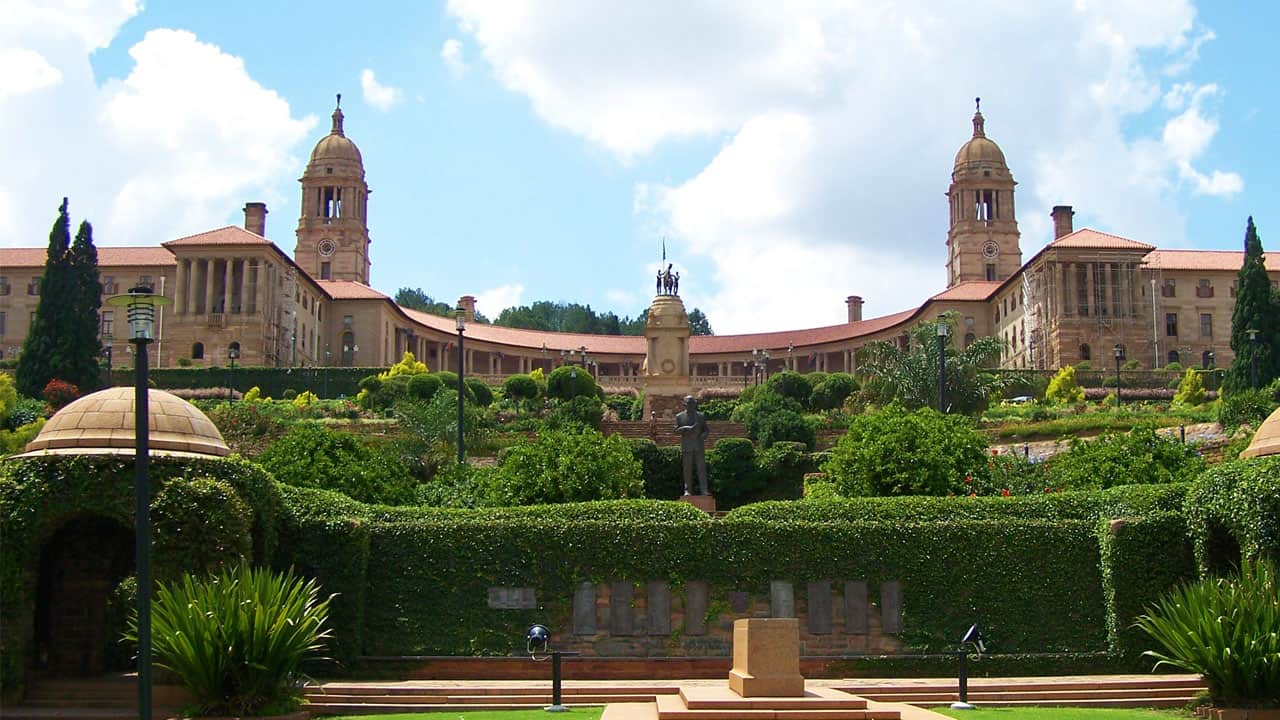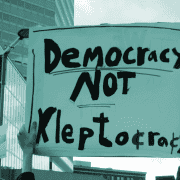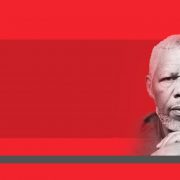|
Getting your Trinity Audio player ready...
|
With just under a week to go until South Africa’s general elections, the campaigning frenzy is about to die down, with parties hoping they have done enough to entice voters to their cause.
While we roll our eyes at the same old political rhetoric that we hear every year, this is eminently bearable compared to another, more permanent side-effect of elections – assassinations with a political motivation.
The Global Initiative Against Transnational Organized Crime (GI-TOC), through its South Africa Observatory (SA-Obs), has recorded at least 10 politically-related assassinations between January and April 2024. The organisation released a new report on 20 May in which it documents its research and findings.
The report, titled The Politics of Murder: Criminal Governance and Targeted Killings in South Africa is framed in the context of South Africa’s 2024 general elections, says GI-TOC. “Previous analysis has shown that there are always spikes in political assassinations during election years, particularly in long-contested provinces such as KwaZulu-Natal (KZN). The 2024 elections, the sixth national election in the country’s 30 years of democracy, have been earmarked as a potential watershed moment.”
The report also highlights a higher number of political assassinations and spikes in violence in local election years than in national election years, with spikes occurring particularly in 2016 (27 cases) and 2021 (30 cases). “These spikes are the result of the fierce competition for local government positions and access to municipal finances, which often comes to a head during municipal elections as changes in control are anticipated and sometimes averted through hits.”
The 10 (at least) political killings recorded in the first four months of 2024 represent an average of at least one hit every two weeks between January and April.
“The incidents continue the grim pattern of previous years: the killings are brutal, often carried out by hitmen with little regard for bystanders and frequently targeting high-profile individuals. The killings have also become more brazen, with victims targeted at public gatherings, often in front of children and community members. The persistently high number of political assassinations over the past decade is alarming, especially given that there is no significant resistance to the government.”
Criminals taking over
Criminal governance, explains GI-TOC, refers to a situation where individuals or groups control a territory through their nefarious activities. “It usually emerges in situations where traditional governance mechanisms have broken down or where the state has failed to meet citizens’ needs for security, service delivery, and dispute resolution.”
In the South African situation, political assassinations tend to fall under a form of criminal governance known as collaborative governance, where criminal actors and local politicians and government administrators collude to eliminate rivals. “Under a system of collaborative criminal governance in South Africa, hitmen typically kill because there is a financial incentive for them to do so.”
Other generally-found types of criminal governance include criminal disorder, where there is conflict between disorganised gangs or armed groups, and divided governance, where criminal actors compete with the state for control of territory and exercise some form of control in the areas where they operate. The type of manifestation depends on the relationships between communities, criminals, and the state.
Meanwhile, the cumulative effect of political assassinations is felt across society, instilling fear in citizens, affecting service delivery, disrupting governance, and threatening democracy.
“By recognising politically motivated violence as more than an isolated phenomenon and acknowledging its complex intersections with other illicit markets, such as the taxi industry,” says GI-TOC, “authorities can adopt more effective strategies to enhance law enforcement efforts, dismantle criminal networks and work towards establishing a safer and more secure society.”
Increase in political assassinations
Political assassinations, as may easily be deduced, involve targeted killings of public servants and politicians, as well as political activists, whistle-blowers, and other members of civil society. We think immediately of anti-apartheid activist Chris Hani, who was gunned down on 10 April 1993, during the tense days before the country transitioned to democracy. South Africa’s first democratic elections took place just over a year after Hani’s brutal murder.
Over the past 10 years, the SA-Obs has recorded a 108% increase in targeted killings in South Africa, and particularly political killings at local municipal level. There were 488 politically motivated assassinations recorded in the country between 2000 and 2023, the report notes, adding that: “Hitmen have become more daring, incidents more public, and victims more high-profile. Coupled with the deficiencies in South Africa’s overburdened criminal justice system, where only about 15% of all murders are solved, the picture that emerges is one of a situation that is barely contained.”
In contrast, 31 political assassinations were recorded across the entirety of 2023, out of a total of 131 targeted killings in that year. This makes it the third most prevalent type of targeted killing, behind that related to organised crime (the most prevalent, with 46 recorded cases in 2023) and the taxi industry (45 recorded killings in 2023).
The province most affected by political killings is KZN, with 19 murders – mainly of local councillors – in 2023, compared with four in the Western Cape and three in Mpumalanga. That same province was also hard-hit by taxi violence (14 killings), though it trailed the Eastern Cape (15 killings) in this regard.
The motives behind these killings in KZN and other regions vary, says the report, but they include eliminating political rivals, intimidating voters, removing competitors for local government contracts, targeting municipal workers responsible for awarding these contracts, and silencing those who speak out against corruption, particularly in local government.
“This violence not only violates political and civil rights, but also undermines democracy by allowing criminal elements to influence or control government functions.”
Can anything be done?
Democracy is severely undermined by political violence and the targeting of opposition members, whistle-blowers, activists, employees of state-owned enterprises, corruption investigators and local councillors. The consequences for accountability, governance, and service delivery are devastating, and have led to a collaborative form of criminal governance in local government.
“Proactive measures are therefore needed to prevent the kind of stagnation that surrounds the implementation of recommendations made in response to commissions of inquiry, due to a lack of resources or the absence of political will,” says GI-TOC.
Furthermore, says GI-TOC, a clear, holistic, strategic, and innovative plan must be formulated to tackle organised crime in general and targeted killings in particular. The strategy should be guided by the following recommendations, which should supplement those of the Moerane Commission established in 2016 to investigate political murders in KZN, previous analytical reports, and the 2019 SALGA report on violence in local government:
- Target the pools of readily available contract killers, whether in the taxi industry or criminal gangs, focusing on the main provinces where they are recruited, such as KZN.
- Establish mechanisms to detect individuals at risk of assassination, by identifying high-risk professions – for example, auditors investigating particularly sensitive financial transactions. Identifying at-risk individuals means support and security can be more efficiently provided to those individuals, reducing their level of risk.
- Emphasise a multi-sectoral approach, with specialised teams within the National Prosecuting Authority to prosecute cases; a dedicated and anonymised hotline for civil society to provide information and report threats, which are then immediately dealt with by dedicated staff; and teams of trusted investigators who work exclusively on assassination cases.
- Focus law enforcement efforts on targeting criminal masterminds for arrest and prosecution, through more robust investigative work. This could be achieved by law enforcement agencies working with financial institutions to trace electronic payments made to hitmen, and by using call tracing technology.
- Improve collaboration between law enforcement and prosecutors. Prosecutors, for example, can use plea deals to uncover the identities of masterminds where they are known, an option not available to law enforcement officials, who only investigate and do not prosecute.
- Launch an independent investigation into the awarding of tenders and subcontracts to criminally linked companies, and blacklist any companies connected to corrupt councillors, to ensure that an honest foundation for local government can be built.
- Decentralise administrative power and processes to mitigate against corruption in municipalities and state-owned enterprises. These should be separated into stages so that no one person or group can control outcomes across them. The current centralisation of municipal power has facilitated targeted killings through favourable regulatory decisions, and the awarding of contracts to companies owned by corrupt politicians or their associates.
- Understand political violence as more than an isolated phenomenon and acknowledge its complex intersections with other illicit markets, such as the taxi industry and organised criminal gangs. In this way, authorities can adopt more effective strategies to dismantle criminal networks, improve law enforcement efforts and work towards a safer and more secure society.
- Target organised crime more broadly by recognising its intersection with the phenomenon of assassination. While the commercial market for violence in South Africa undoubtedly contributes to the high overall crime rate, targeted killings are linked to other organised criminal economies, so what works in addressing the scourge of organised crime should also help to reduce targeted killings.








